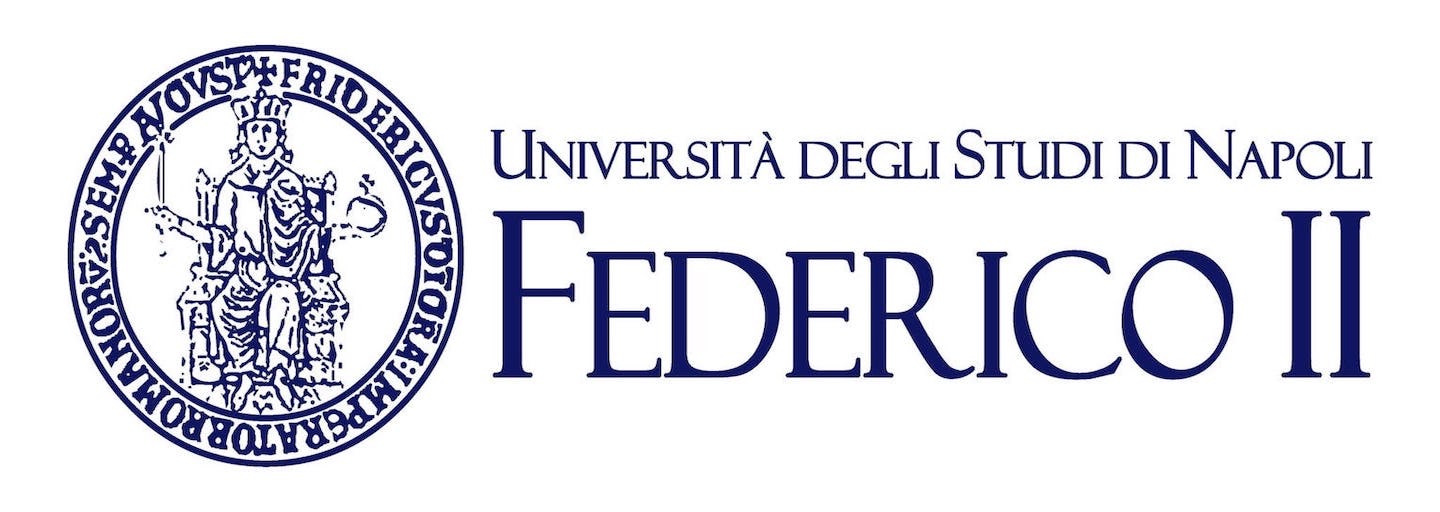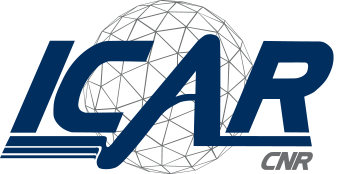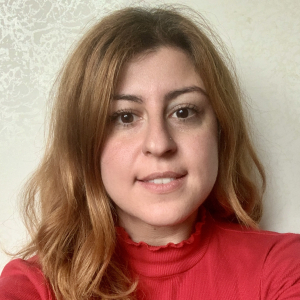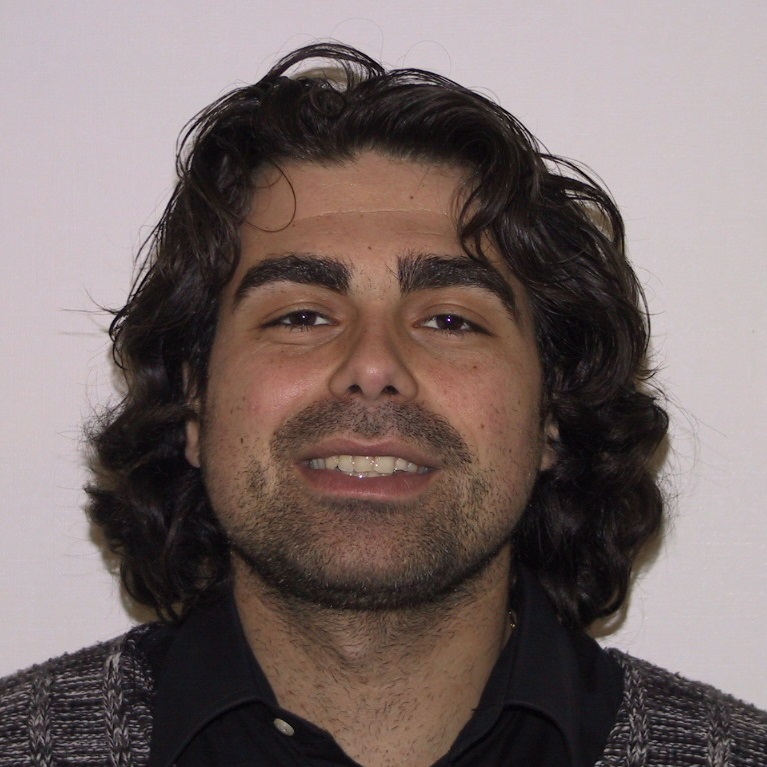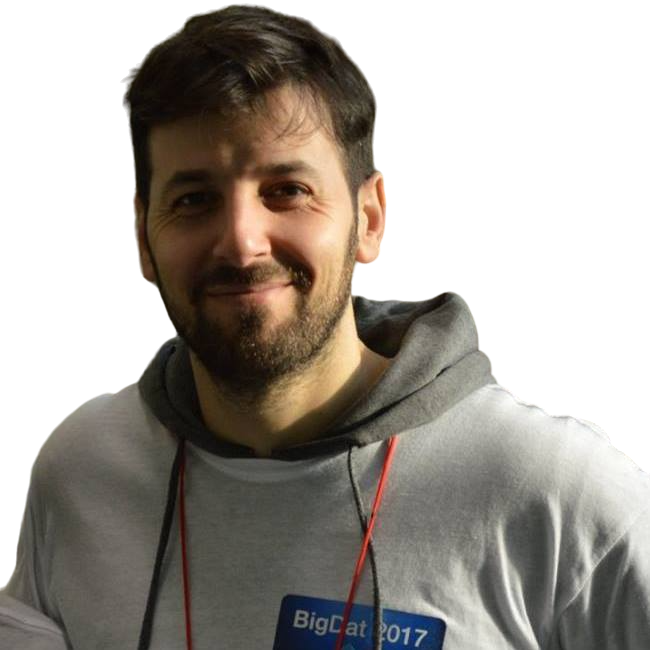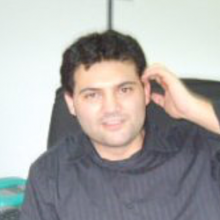13th Workshop on
New Frontiers in Mining Complex Patterns
in conjunction with the
European Conference on Machine Learning and Principles and Practice of Knowledge Discovery in Databases
September 15, 2025 – Porto, Portugal
About NFMCP 2025
The 13th edition of the Workshop New Frontiers in Mining Complex Patterns (NFMCP) will be hosted by the European Conference on Machine Learning and Principles and Practice of Knowledge Discovery in Databases (ECML-PKDD) in Porto, Portugal, from September 15 to 19, 2025. The workshop aims to bring together data mining and machine learning researchers and practitioners interested in analyzing complex data, such as multi-table data, semi-structured data, web data, time series and sequences, graphs, and trees.
The NFMCP workshop is focused on exploring and sharing new techniques for analyzing complex data sources, which has become an increasingly common challenge with the rise of automatic systems collecting vast amounts of data with complex structures. The workshop's primary goal is to promote collaboration among researchers and practitioners, share knowledge and ideas, and encourage the exploration of innovative solutions for analyzing complex data sources.
The NFMCP workshop provides a platform for researchers to present their latest research findings, discuss their work with others in the field, and foster interdisciplinary research collaborations. It is an exciting opportunity for data mining and machine learning enthusiasts to share their knowledge, explore new techniques, and collaborate with others in the field. The workshop's focus on complex and massive data sources makes it highly relevant to the machine-learning community, and its goals of promoting collaboration and innovation in the field make it a valuable event for all those interested in data mining and machine learning.
Call for papers
We welcome submissions focusing on recent advances and the latest developments in analysing complex and massive data sources such as blogs, event or log data, medical data, spatio-temporal data, social networks, mobility data, sensor data and streams. In addition, we encourage submissions from statistics, machine learning and big data analytics, which present techniques that take advantage of the informative richness of complex, massive data for efficiently and effectively identifying new patterns.
Workshop topics
- Mining Big Data
- Mining Biological Data
- Social Media Analytics
- Ontology and Metadata
- Mining Multimedia Data
- Sustainable Data Mining
- LLMs for Pattern Mining
- Mining Multi-relational Data
- Mining Networks and Graphs
- Mining Spatio-Temporal Data
- Data Mining for Cybersecurity
- Privacy-preserving Data Mining
- Mining Dynamic and Evolving Data
- Semantic Web and Knowledge Databases
- Mining Environmental and Scientific Data
- Mining Heterogeneous and Ubiquitous Data
- Mining Semi-structured and Unstructured Data
- Mining Stream, Time series and Sequence Data
- Foundation on Pattern Mining, Pattern Usage and Pattern Understanding
Paper submissions
NFMCP welcomes diverse contributions, ranging from research papers showcasing well-established findings or ongoing work to innovative papers introducing novel ideas or exploratory research. Additionally, the conference embraces papers that share industry experiences and case studies. However, it is essential to highlight that papers based on work that has been recently published elsewhere will not be considered for inclusion in the conference proceedings.
Submissions are accepted in two formats:
- Extended abstract having at most 8 pages including references. Extended abstracts are intended to stimulate discussion and collaboration by either reviewing previously published research or outlining new emerging ideas.
- Regular research papers having at most 12 pages including references. To be published in the proceedings, research papers must be original, not published previously, and not submitted concurrently elsewhere.
All submissions should be made in PDF via Microsoft CMT, selecting the "New Frontiers in Mining Complex Patterns" track.
The accepted contributions will be included in a joint Post-Workshop proceeding published by Springer Lecture Notes in Computer Science, in 1-2 volumes, organised by focused scope and possibly indexed by WOS. Papers authors will have the faculty to opt-in or opt-out. We suggest workshop papers are prepared and submitted in the format: LNCS format.
Dates
Submission deadline: June 14, 2025 June, 30 2025
Notification of acceptance: July 17, 2025
Camera-ready papers: July 28, 2025
Workshop: September 15, 2025.
Organizers
Program Committee
- Claudio A. Ardagna | University of Milan, Italy
- Nicola Bena | University of Milan, Italy
- Francesco Benedetti | University of Bari, Italy
- Jorge Bernardino | Polytechnic University of Coimbra, Portugal
- Erica Coppolillo | University of Calabria, Italy
- Roberto Corizzo | American University, USA
- Annunziata D'Aversa | University of Bari, Italy
- Graziella De Martino | University of Bari, Italy
- Davide Di Pierro | INRAE, France
- Daniela Gallo | University of Salento, Italy
- Dragi Kocev | Jožef Stefan Institute, Slovenia
- Boshko Koloski | Jožef Stefan Institute, Slovenia
- Fabrizio Montecchiani | University of Perugia, Italy
- Simone Mungari | ICAR-CNR, Italy
- Enea V. Napolitano | University of Naples, Italy
- Ruggero G. Pensa | University of Turin, Italy
- Gianvito Pio | University of Bari, Italy
- Stefano Polimena | University of Bari, Italy
- Francesco Scala | ICAR-CNR, Italy
- Raffaele Scaringi | University of Bari, Italy
- Alicja Wieczorkowska | Polish-Japanese Academy of Information Technology, Poland
Program
Opening [9:00 - 9:10]
Paolo Mignone (University of Bari, Italy).
Keynote Speaker [9:10 - 10:00]
Vitor Cerqueira (University of Porto, Portugal).
Reality Checks for Evaluation Practices in Time Series Forecasting
Session 1 (Chair: Paolo Mignone) [10:00 - 10:30]
The paper presentations will be 10 minutes long, followed by a 3-minute discussion.- Junze Tan (National University of Defense Technology, China), Runhao Zhao (National University of Defense Technology, China), Jiuyang Tang (National University of Defense Technology, China), Lei He (National University of Defense Technology, China).
Few-Shot Knowledge Graph Question Generation via LLM Abstraction-to-Instantiation Conversion and Small Models Collaboration - Elena Atanasovska (Jožef Stefan Institute, Slovenia), Boshko Koloski (Jožef Stefan Institute, Slovenia), Dragi Kocev (Jožef Stefan Institute, Slovenia).
Evaluation of Knowledge Graph Construction Methods on the Stroke Domain
Coffee break [10:30 - 11:00]
Session 2 (Chair: Antonio Pellicani) [11:00 - 11:55]
The paper presentations will be 10 minutes long, followed by a 3-minute discussion.- Liliana Martirano (ICAR CNR, Italy), Carmela Comito (ICAR CNR, Italy).
Unveiling Misinformation Spread with Graph Neural Networks: a Model-Driven Explainable Approach - Martin Rackl (University of Würzburg, Germany), Felix Fuchs (University of Würzburg, Germany), Andreas Hotho (University of Würzburg, Germany).
On the Role of Embeddings in Diffusion-based Generation of scRNA-seq Data - Jurica Levatić (Jožef Stefan Institute, Slovenia), Marjan Stoimchev (Jožef Stefan Institute, Slovenia), Csaba Vörös (Biological Research Centre, Hungary), David Bauer (Biological Research Centre, Hungary), Peter Horvath (Biological Research Centre, Hungary), Sašo Džeroski (Jožef Stefan Institute, Slovenia).
Understanding the Success of Semi-Supervised Learning: A Case Study of Mitotic Phase Classification Using Raman Imaging - Alicja Wieczorkowska (Polish-Japanese Academy of Information Technology, Poland), Elżbieta Kubera (University of Life Sciences in Lublin, Poland), Agnieszka Kubik-Komar (University of Life Sciences in Lublin, Poland), Krystyna Piotrowska-Weryszko (University of Life Sciences in Lublin, Poland), Agata Konarska (University of Life Sciences in Lublin, Poland).
Effective Image Representations for Tree Pollen Recognition
Session 3 (Chair: Angelica Liguori) [11:55 - 12:45]
The paper presentations will be 10 minutes long, followed by a 3-minute discussion.- Wannes Janssens (Ghent University, Belgium), Matthias Bogaert (Ghent University, Belgium), Dirk Van den Poel (Ghent University, Belgium).
LLM-Assisted Topic Reduction for BERTopic on Social Media Data - Manuel Dileo (University of Milan, Italy), Pasquale Minervini (University of Edinburgh, United Kingdom), Matteo Zignani (University of Milan, Italy).
Fine-tuning foundation models for temporal knowledge graph reasoning - Celeste Sguera (University of Bari, Italy), Antonio Pellicani (University of Bari, Italy), Giuseppe Modugno (MTM Project srl, Italy), Angelo Giannoccaro (MTM Project srl, Italy), Michelangelo Ceci (University of Bari, Italy).
Conversational Knowledge Extraction from Technical Manuals: An LLM-based Framework with Ontological Guidance - Sónia Dias (Polytechnic Institute of Viana do Castelo & LIAAD-INESC TEC, Portugal), Paula Brito (University of Porto & LIAAD-INESC TEC, Portugal), Paula Amaral (NOVA University Lisbon & NovaMath, Portugal).
Classification of Internet Traffic: A Distributional Data Approach
Closing [12:45 - 13:00]
Elio Masciari (University of Naples Federico II, Italy).
Venue
Please read about the venue in the ECML-PKDD venue page.

